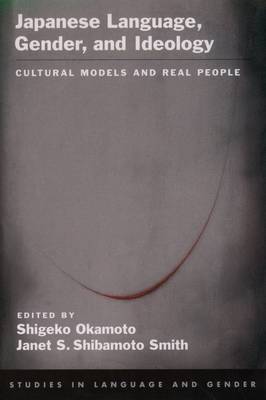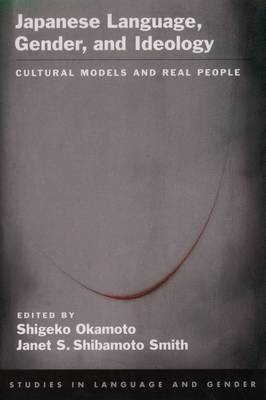
Door een staking bij bpost kan je online bestelling op dit moment iets langer onderweg zijn dan voorzien. Dringend iets nodig? Onze winkels ontvangen jou met open armen!
- Afhalen na 1 uur in een winkel met voorraad
- Gratis thuislevering in België vanaf € 30
- Ruim aanbod met 7 miljoen producten
Door een staking bij bpost kan je online bestelling op dit moment iets langer onderweg zijn dan voorzien. Dringend iets nodig? Onze winkels ontvangen jou met open armen!
- Afhalen na 1 uur in een winkel met voorraad
- Gratis thuislevering in België vanaf € 30
- Ruim aanbod met 7 miljoen producten
Zoeken
Japanese Language, Gender, and Ideology
Cultural Models and Real People
€ 68,95
+ 137 punten
Omschrijving
Japanese Language, Gender and Ideology is a collection of previously unpublished articles by established as well as promising young scholars in Japanese language and gender studies. The contributors to this edited volume argue that traditional views of language in Japan are cultural constructs created by policy makers and linguists, and that Japanese society in general, and language use in particular, are much more diverse and heterogeneous than previously understood. This volume brings together studies that substantially advance our understanding of the relationship between Japanese language and gender, with particular focus on examining local linguistic practices in relation to dominant ideologies. Topics studies include gender and politeness, the history of language policy, language and Japanese romance novels and fashion magazines, bar talk, dictionary definitions, and the use of first-person pronouns. The volume will substantially advance the agenda of this field, and will be of interest to sociolinguists, anthropologists, sociologists, and scholars of Japan and Japanese.
Specificaties
Betrokkenen
- Uitgeverij:
Inhoud
- Aantal bladzijden:
- 320
- Taal:
- Engels
- Reeks:
Eigenschappen
- Productcode (EAN):
- 9780195166187
- Verschijningsdatum:
- 28/10/2004
- Uitvoering:
- Paperback
- Formaat:
- Trade paperback (VS)
- Afmetingen:
- 152 mm x 229 mm
- Gewicht:
- 462 g

Alleen bij Standaard Boekhandel
+ 137 punten op je klantenkaart van Standaard Boekhandel
Beoordelingen
We publiceren alleen reviews die voldoen aan de voorwaarden voor reviews. Bekijk onze voorwaarden voor reviews.










